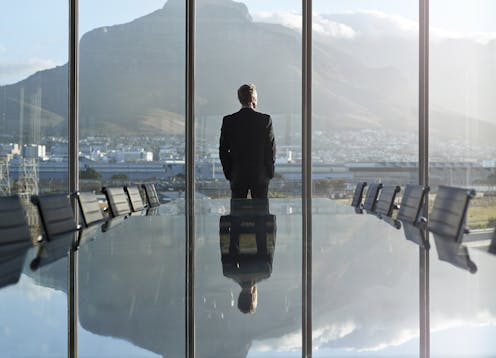Skip the fancy perks – better staff wellbeing could be as simple as the view from the office window
- Written by Emmy van Esch, Lecturer in Management and International Business, University of Auckland, Waipapa Taumata Rau

Four years after the pandemic forced workers home, companies in New Zealand and elsewhere are summoning staff back to the office[1].
But office workers are not necessarily thrilled about the prospect. Recent research[2] found returning to the office can negatively affect staff wellbeing. In particular, it can make many employees feel more stressed.
This adds to the decline in wellbeing many have experienced since the COVID-19 pandemic due to social distancing, isolation, daily uncertainty and fear. As a result, there has been an increase in people experiencing stress[3], anxiety, frustration, isolation and depression.
So how can organisations bring employees back to the office while taking their wellbeing into account?
The view trumps flash perks
Yoga classes? Onsite gyms? Childcare? When it comes to employee wellbeing, flashy perks seem less attractive for workers than a more basic but often overlooked one: a window with a good view.
In a survey[4] of 1,614 North American office workers, over half said views of the outdoors were the number one perk they wanted. And 78% said it improved their happiness and wellbeing.
The survey participants valued office views more than other perks such as fitness facilities and cafeterias, or benefits such as onsite childcare.
But what is it about office window views that workers find attractive? Is it the overall vista? Or are there particular features within the view?
Focusing on the features
Many people believe natural window views (trees, grass) are good for workers and urban window views (buildings, streets) are bad. But that’s not what we found.
Our team analysed the office window views[6] of hundreds of employees in the US who spend the majority of the working day inside.
We found even the small amount of outdoor exposure from an office window view can explain why a worker does – or does not – feel good at work.
But at the same time, the research found some – but not all – natural views are good for us. The same was true for urban views. Some urban views are good for workers, others are not.
What matters most for an employee’s psychological, physical, and job-specific wellbeing are the specific features of their office window view. Our research found the two view features most likely to boost wellbeing are what we termed “mystery” and “coherence”.
Mysterious views (think of a mountain range or a city in the distance) hide information and make people curious to explore more. Coherent views (think of a savanna or skyscrapers) look symmetrical and organised which helps people to make sense of the environment.
The two worst features for our wellbeing are “refuge” and “complexity”. Refuge views (think of dense shrubs or narrow dark alleys) are excellent hiding places for predators, which people prefer to avoid. Complex views (think of a tangled forest or crowded urban areas) offer many shapes and textures, which can be overwhelming.
A passive way to boost wellbeing
Our research shows improving office window views is an efficient intervention to enhance employee wellbeing. Many popular employee perks require training (mindfulness), a designated time or place (the company’s onsite fitness programmes and gym), or motivation to engage in the activity (showing up for those).
But window views are passive, they require no effort from employees, and operate on a more or less continuous basis.
The pandemic raised awareness of the importance of access to the outdoors. We often feel better when exposed to the outdoor environment. Our findings could help organisations “build back better” as offices reopen.
A growing number of organisations are already redesigning workplaces[7] to give employees greater exposure to the outdoors. And an easy way to achieve this is with office windows. Many companies now have floor-to-ceiling windows throughout the building.
It is clear companies and their staff need to take a closer look at their window view. The features beyond the glass may explain why workers do – or do not – feel good at work.
References
- ^ summoning staff back to the office (www.1news.co.nz)
- ^ research (journals.sagepub.com)
- ^ increase in people experiencing stress (www.ncbi.nlm.nih.gov)
- ^ survey (view.com)
- ^ Eva-Katalin/Getty Images (www.gettyimages.com.au)
- ^ analysed the office window views (www.sciencedirect.com)
- ^ already redesigning workplaces (hbr.org)
Authors: Emmy van Esch, Lecturer in Management and International Business, University of Auckland, Waipapa Taumata Rau







